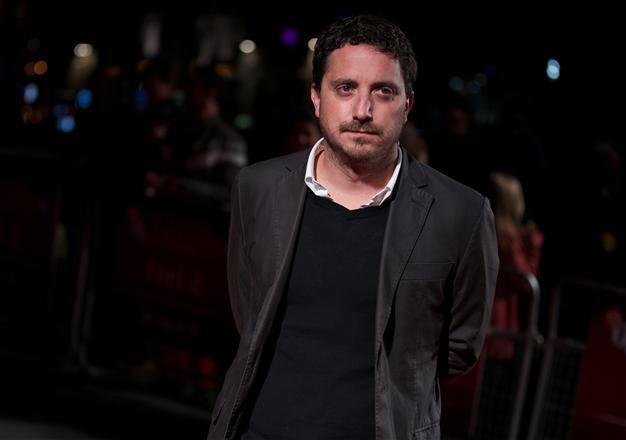Oscar nominated Pinochet film 'No' divides Chile
PARIS - Agence France-Presse

A file picture taken on October 15, 2012, in London during the 56th BFI London Film Festival shows Chilean film director and screenwriter Pablo Larrain posing on the red carpet before attending the premiere of his film 'No'. AFP Photo
More than 20 years after Chilean military dictator Augusto Pinochet was forced from power, director Pablo Larrain says the reaction to his Oscar-nominated film about the campaign to oust him is evidence of the depth of feeling he still provokes.Larrain's film "No", up against Michael Haneke's widely tipped "Amour" for best foreign language film, tells the story of a brash young advertising executive who takes on the apparently doomed task of masterminding the campaign against Pinochet in a 1988 plebiscite on his presidency.
Mexican actor Gael Garcia Bernal stars as ad man Rene Saavedra who, with an atmosphere of gloom and defeatism engulfing the 'no' campaign, is asked to use his talent for selling soap powder to transform the opposition's chances.
Despite initial scepticism he agrees and ultimately succeeds in turning things around with his feel-good "Chile, happiness is coming" slogan and campaign.
The vote led to Pinochet being forced to hand power in 1990 to Patricio Aylwin, the first democratically elected president since socialist Salvador Allende was ousted in a 1973 military coup.
"Many people remember how Pinochet arrived after the coup against Allende, but few know how he was forced out and I wanted to tell the story of how a message of joy and optimism contributed to his defeat," Larrain told AFP in an interview.
Pinochet, who ruled Chile with an iron fist from 1973-1990, came to symbolise Latin American military repression.
In the years after his ouster, he never stood trial on any charge, after his lawyers successfully argued that "mild dementia" prevented him from defending himself. He died aged 91 in 2006.
"Not a leaf moves without my knowledge," he once said, as thousands of Chileans were tortured, executed and forced into exile following the 1973 coup.
Sold to over 50 countries worldwide, the film plunges the viewer into a period when Pinochet's position seemed unassailable, without the benefit of historical hindsight.
Using cameras with very low resolution to match the look of the archive footage, Larrain said he aimed to create a seamless blend of history and fiction.
"My motivation was not just to do a work of memory. What I wanted to do was to tell this fascinating story and rescue a moment that was very important for Chilean society." The Pinochet era deeply divides Chile even today with some Chileans hailing him for replacing socialism with free-market policies, despite his notoriety.
During his rule, thousands of people were executed or disappeared from custody, presumed killed.
At the time of his death he was an international pariah and faced more than 250 charges for alleged rights abuses, including masterminding the infamous "Caravan of Death" that killed 75 regime opponents after he seized power.
Larrain, 36, grew up during the 1980s under Pinochet's dictatorship Two of his earlier films "Tony Manero" (2008), and "Post Mortem" (2010), also drew on the Pinochet era although they tackled it from different angles.
"I think the big problem in Chilean society is impunity," he said.
"There's been no justice. Pinochet died free and most of the torturers and assassins are free. That doesn't allow for the wound to heal and doesn't allow for Chilean society to move forward." For that reason, he said, the film sparked much debate in Chile where "everything that can be said about a film" was said.
"None of the political factions were happy because they wanted it (the film) to legitimise their own political perspective.
"But this film is only a subjective glance. It was not to teach a history class," he added.
Larrain expects the Academy Award to go to Austrian director Haneke but says he is proud to have been nominated and had the opportunity to carry the torch for Chilean film.
"We are competing with a master (but) what is true is that this Oscar nomination has opened many doors for our movie.
"Chilean cinema is living a great moment. There are many talented directors, they are doing comedy, horror, action, family, political and social dramas. It is very rich and diversified. and I am very proud to be part of this generation," he said.
"No" opens in New York and Los Angeles on February 15 and across the US and Europe on March 7.
















